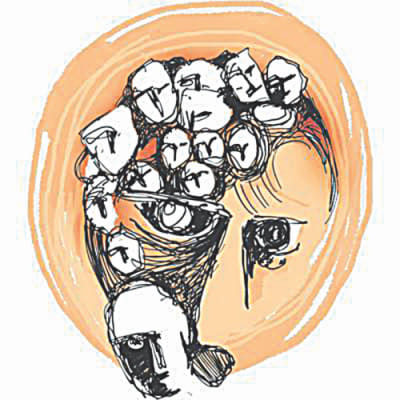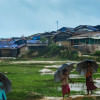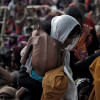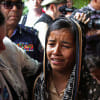UNSC should stand in solidarity with survivors of rape in conflict

The honour bestowed on us by the Norwegian Nobel Committee in late 2018, when we jointly won the Nobel Peace Prize, comes with tremendous responsibility. We believe it is our duty to bring forward the voices of survivors of sexual violence in conflict, their families and communities and advocate for more comprehensive and impactful approaches to prevent and respond to conflict-related sexual violence—particularly to those who have the means to strengthen prevention. This includes the United Nations Security Council as the preeminent institution for maintaining international peace and security.
This Tuesday we have the privilege of addressing the UN Security Council in person as part of its annual Open Debate on Conflict-Related Sexual Violence in New York. We commend Germany's initiative to introduce a new Security Council resolution during its Presidency which, importantly, recognises the need for survivor centric approaches.
We recognise this is a critical and historical moment in terms of how the crime of sexual violence is used as a weapon of war, the role terrorism plays, and how both are addressed. We are pleased that unprecedented attention regarding the plight of survivors and their needs are being considered. However, we must not lose sight of the fact that the international community is failing to prevent these mass atrocities from occurring.
The UN Secretary-General recently published his 10th report on Conflict Related Sexual Violence. The report highlights 19 countries, where the detrimental and lasting impact of prolonged sexual violence continues to devastate victims and impede peace and prosperity. It puts forth several critical recommendations—ones consistently made by survivors in our own countries of the Democratic Republic of the Congo and Iraq, as well as in many of other countries we have visited.
We support the recommendations set forth and would like to highlight critical elements of great importance to survivors—holistic support and justice and accountability. Survivors not only need, but should be entitled to, comprehensive support for life-saving medical and psycho-social services as well as access to livelihoods, education and legal counsel. Survivors are also entitled to justice for the harms inflicted upon them and perpetrators should be held accountable for their crimes. Ending impunity for sexual violence is essential and will deter and prevent future such violations.
Prosecuting perpetrators of mass atrocities is crucial, but mechanisms for reparations for victims are equally as important. Providing reparations to victims of sexual violence is a moral imperative that needs to be recognized globally by our collective conscience. Reparations would also serve to help ensure non-repetition; and survivors see ending impunity for sexual violence as essential to deterring and preventing such violations. Those who commit sexual violence cannot be allowed to do so without consequence.
Together, we join our voices with that of the UN Secretary-General to urge the Security Council to strengthen its follow-up on the compliance of parties to conflict. The lack of such regular review is a gap that exists in the accountability system—and one which allows harms to be inflicted. The unacceptable reality is that the majority of the parties listed by the Secretary-General have completely ignored the demands of the Security Council for the past decade to immediately cease violations. Without the will of the international community and imposed consequences, crimes will continue to be perpetrated.
We are hopeful that an agreed resolution this week will finally mean that these remedies and mechanisms, which have been urgently needed for so long, can be put in place. We urge all members of the Security Council to stand in solidarity with survivors and civil society groups on the frontlines of conflicts by adopting a strong, bold and meaningful agreement. There is simply no excuse for continuing to fail those who have already been victimised—as well as those who continue to be at risk of—devastating levels of sexual violence in conflict.
Dr. Denis Mukwege is Nobel Peace laureate and the founder of Panzi Hospital and Foundation. Nadia Murad is Nobel Peace laureate and president of Nadia's Initiative. This article was first published by Thomson Reuters Foundation, the charitable arm of Thomson Reuters, that covers humanitarian news, women's and LGBT+ rights, human trafficking, property rights, and climate change.

 For all latest news, follow The Daily Star's Google News channel.
For all latest news, follow The Daily Star's Google News channel. 








Comments